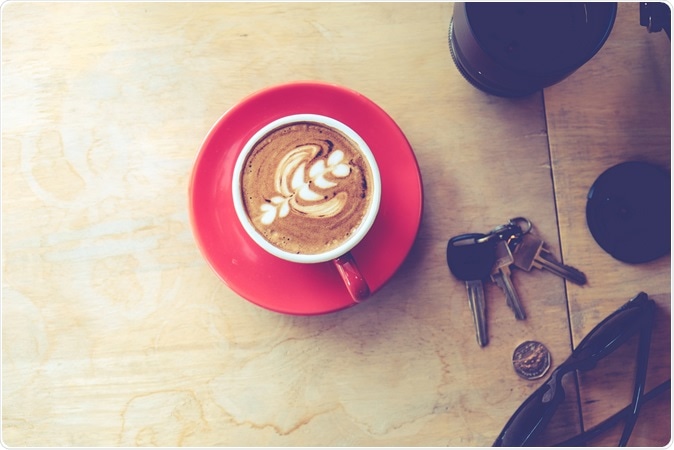United States Army researchers have developed a unique algorithm that can predict the right amount of coffee which can produce peak alertness. The algorithm takes into account several features including sleep schedules of individuals and calculates the amount of coffee that they need. The results of the study were published in the latest issue of the Journal of Sleep Research.

Image Credit: Mirtmirt / Shutterstock
Using this algorithm, a person’s performance could be improved on a task that requires attention by up to 64 percent the researchers write. This is even though the amount of coffee they were consuming before was the same. The algorithm finds out the type and amount of caffeine to be taken at one time during the day and also suggests other types of caffeine to be taken later in the day for optimum alertness. Using this algorithm, while alertness could be optimized, there would also be a 65 percent reduction in the caffeine consumption while achieving same levels of performance.
According to senior author Jaques Reifman, director of the DoD Biotechnology High Performance Computing Software Applications Institute at the U.S. Army Medical Research and Materiel Command in Fort Detrick, Maryland, this new algorithm can personalize individual need for caffeine for optimum performance. The caffeine needs to be taken at specified time to achieve desired effects for the desired duration he said. He explained that students, for example, who have been sleep deprived for a week before an exam would know when and how much of caffeine they need to remain on their highest alertness during the exam using this algorithm.
There has been an earlier study that uses a mathematical model called the unified model of performance (UMP) that could predict performance by taking into account sleep loss and caffeine intake. The UMP had failed to predict the caffeine that needs to be used to optimize performance. This new study develops the “optimization algorithm” to develop a “caffeine dosing strategy” for optimum performance. Computer simulations were done based on performance and dosing was perfected. While caffeine consumption could be reduced by 17 to 65 percent, performance could be enhanced by 16 to 64 percent the team noted. In one study for example, participants were given 400 milligrams of caffeine at the same time each day for five days till they had 2 gms of caffeine. These participants were getting five hours of sleep per night and were sleep deprived. Slowly as their sleep deprivation accumulated into a sleep debt, their performance later in the day began to decline. This algorithm predicted that if the participants were given less caffeine at the start of the week and at the start of the day compared to later part of the week and later during the day, their performance could be enhanced or rather optimized.
To make things easier, the team has developed a web-based tool and a smartphone app called 2B-Alert. This tool or app uses the algorithm and predicts a person’s alertness on the basis of their sleep schedules and consumption of caffeine. The smartphone app takes it further by tracking over time the individual’s response to sleep deprivation and caffeine and individualize their caffeine requirements and needs. At present the does not tell the person the amount of caffeine they need to take to achieve peak performance. That is still in the works say the researchers. The US soldiers are being tested to validate the predictions of the algorithm to estimate and suggest caffeine use.
Reifman hopes that despite being developed for the military, there is every possibility that this algorithm may help the public especially shift workers, students and air traffic controllers. Sleep deprivation is common and this algorithm may help maximize the effects of caffeine during sleep deprivation he said. By end of this year, the app could be predicting the amounts of caffeine needed each day by users according to their individual needs hopes Reifman.